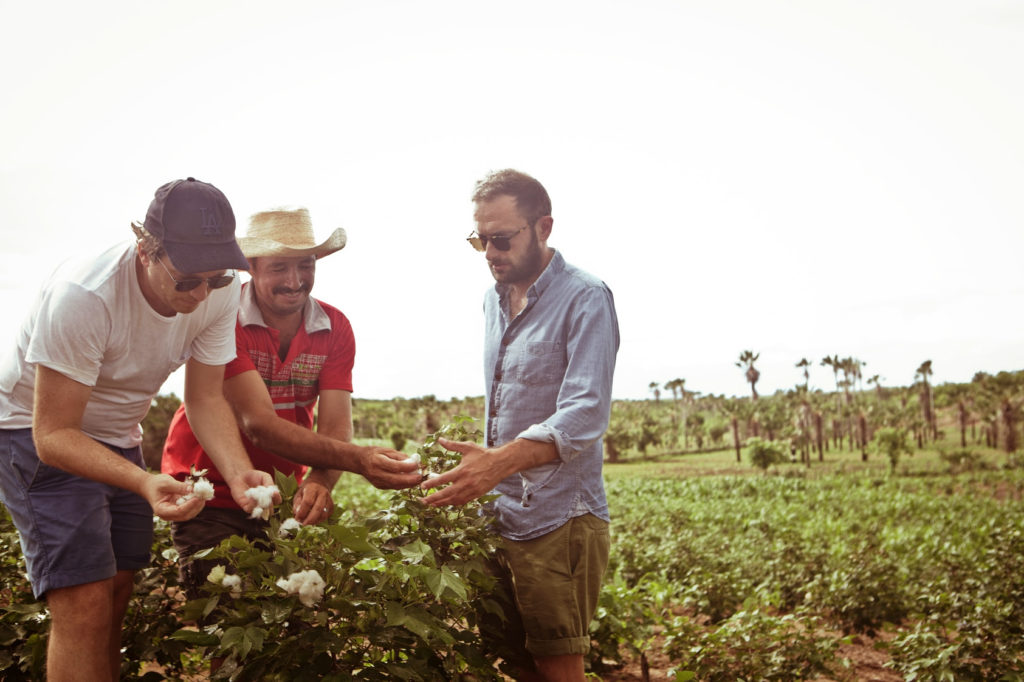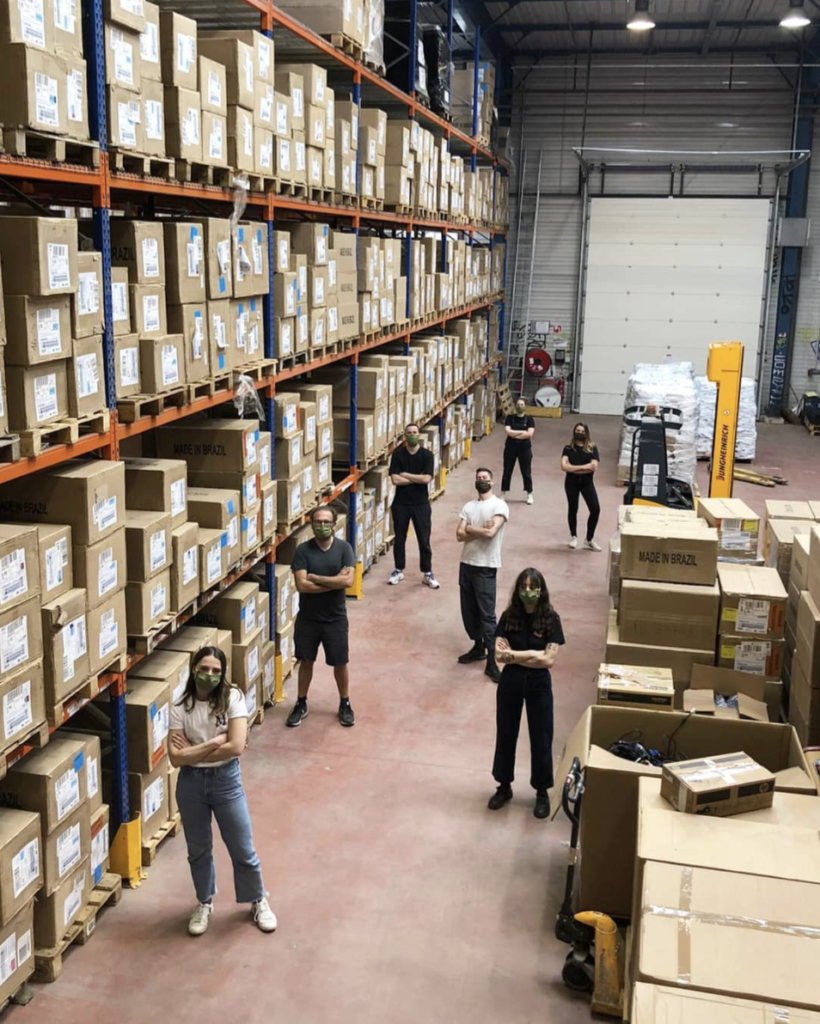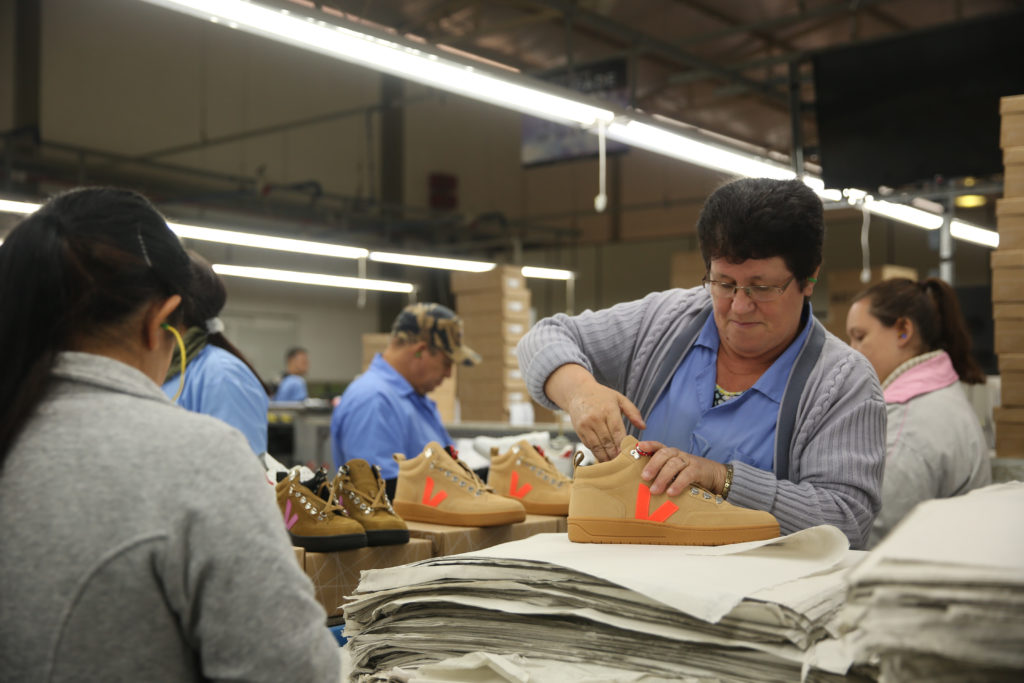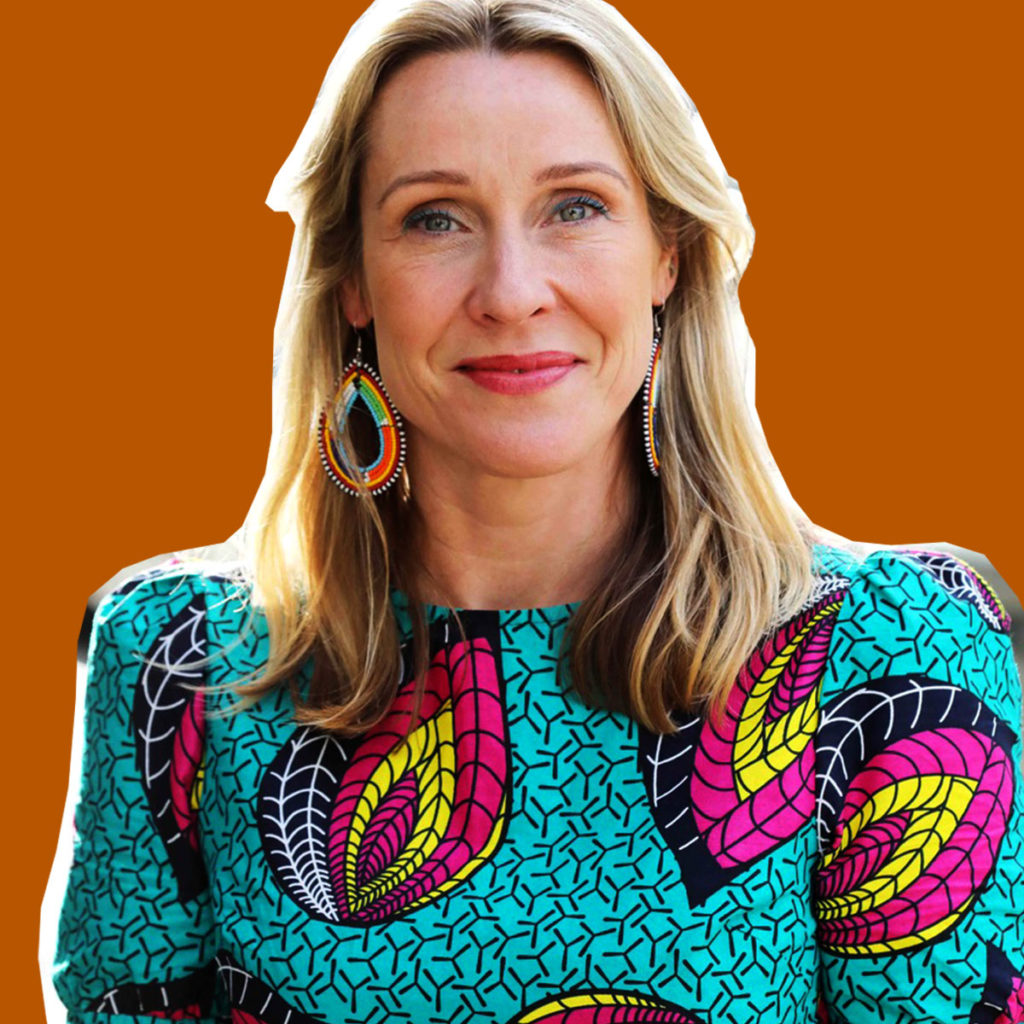
Enough Fast Fashion
Sébastien Kopp is the co-founder of VEJA, a footwear brand he built with friend François-Ghislain Morillion over the past two decades. The French duo have woven their way through Brazil, forging partnerships with rubber tappers in the Amazon, organic cotton farmers in the North East, and a community of shoe makers in Porto Alegre on the Uruguay border. Building a supply chain in Brazil, using as many ecological materials as possible, and paying people a fair wage for their labor, VEJA set the example for “sustainability” long before the term made it mainstream — and long before their competitors started looking at how to transform their shoes into more eco-friendly options.
VEJA managed to keep its staff, avoid furloughs, and continue to pursue its strong social and environmental mission in the chaos of 2020. When restrictions eased in Paris, and Kopp could come out of his apartment, he rode the streets of Paris from the office to the warehouse on a bicycle to see how he could run the company safely amidst a pandemic. He speaks to us from VEJA’s office in the Marais district of Paris.

Sébastien Kopp pictured on the right.
Esha: What has been the big learning for you this past year?
Sébastien: That everything can change really fast. You don’t have the power to change it and be in control. 2020 taught me patience. I was forced to “be.” I didn’t know that I could be patient like this.
I stayed two months in my apartment with my family. We were in a bubble of happiness. I could have stayed for six months.
Tell us about what happened to VEJA during the initial lockdown. How did you adapt?
We shut down offices and warehouses. We were still working remotely but our offices in the US, Brazil, and France shut down. And our warehouse here in Paris, which is run and operated by an NGO, shut down. Our factory [in Porto Alegre] quickly started making masks and it allowed us to produce masks at a good cost. We could distribute those masks to the people in need in Amazonia and the North East region of Brazil which was hit quite badly by the virus. Because Brazil was one of the last big countries to be touched by the pandemic, we had time to start making masks. So one third of the factory was working. It was safe, everyone was spaced out, windows open, and obviously wearing masks.
VEJA’s offices and the warehouse stayed closed from March 16 to June 1.

VEJA warehouse and team as they reopen after closing in March last year.
How did it affect the business?
Our website was still operating. So we delayed orders till it was safe to send. People understood. When I started riding my bike around Paris, it was scary. There were no cars. You could just see empty roads, except for ambulances. It was something out of a movie. But it wasn’t. It was real life.
Were you nervous as to what the pandemic would do to VEJA?
For the first few weeks, my job was to make sure everyone was safe. In NYC, we have an office. We closed that office and the office in Brazil as well, where no one was really taking it seriously at that point.
“When we shut the stores here in Paris, our staff was getting 85% of their wage in France, 85% of your net salary. That was a government scheme. So we thought, let’s apply this to everyone in the company. And we did. We shut the store in NYC and São Paulo and told the staff to go home and they could keep earning 85% of their salary. We knew that we could afford to do this for a while.”
For how long?
Maybe up to 3 years. But it would depend on how much we had coming as well.
Wow! What does this experience teach you about business though?
I think COVID has been a good critic of capitalism.
To run a business today means putting the gear at maximum. You get loans, you get debts to push your business to the maximum in the shortest period of time. We never did that. We are a company of 200 people. We are driving in gear 1 or 2, and it’s OK. And we like it. We go slower, no problem. But if something happens, we don’t take the wrong approach. We can just put on the brakes. That’s what happened with COVID. When you don’t have loans or investors, and you don’t spend lavishly, it’s OK. We have been very prudent with our spending as a company.

VEJA shoes are produced in a facility in Porto Alegre, Brazil, seen here before the pandemic.
“Everyone was running too fast. Then came the rain. Then came the fog. We are just at the beginning of the consequences of COVID today. It’s going to be massive. No one is safe. It showed the problem with modern-day capitalism.”
Do you think businesses will take environmental and social issues more seriously now?
No. Social and environmental consequences will be massive. It will be a more violent world, unjust world, a more tough world, because of the economic consequences for every country. But on the other hand, I think the thinking went very deep inside each of us. Everyone was looking for meaning before, but now it’s an even stronger urge — yet it’s in a more violent world. I don’t think the world after the pandemic will be nicer.
Does it make you think more about VEJA and the impact of the company?
Yes. We’ve been thinking more about justice. We have been thinking about this since the beginning — but maybe we didn’t do enough. I think we didn’t do enough. We’re going to go further, and deeper on this.
What have you had enough of?
Cynicism.
Explain that.
I think it’s a coin with two faces. It’s going with the reality as it is and being selfish about it, and not caring. Always saying it’s impossible, we cannot change that, you cannot move this, you cannot become what you want to be…. you cannot, you cannot, you cannot, you cannot.
It’s like saying, “I know better. You don’t have to fight.” When I meet people like this, I ignore this attitude.
How do you describe yourself?
Realist. For me that’s the opposite of cynicism.
Do you get worried as you see more shoe brands adopting “sustainability?”
No. That’s basically akin to a lot of people saying, “you were right all along.”




